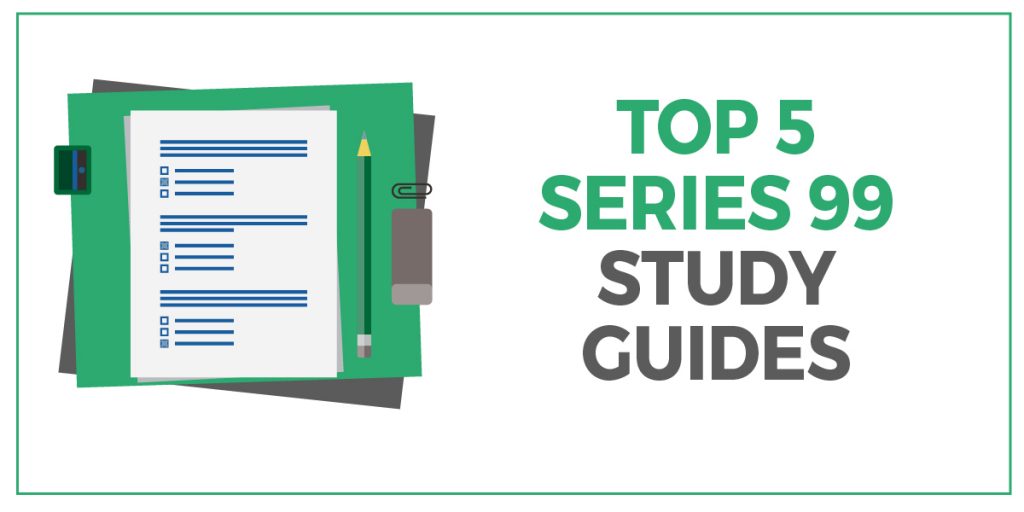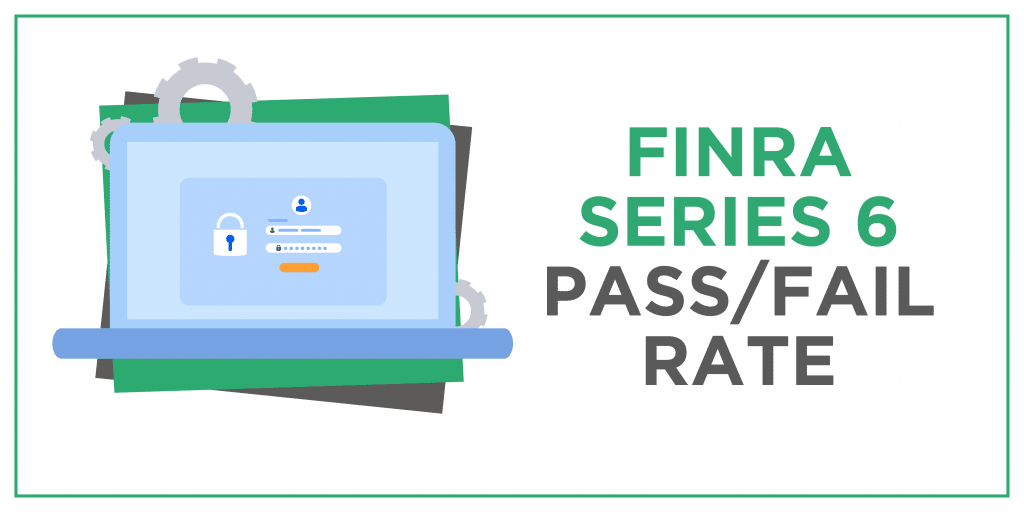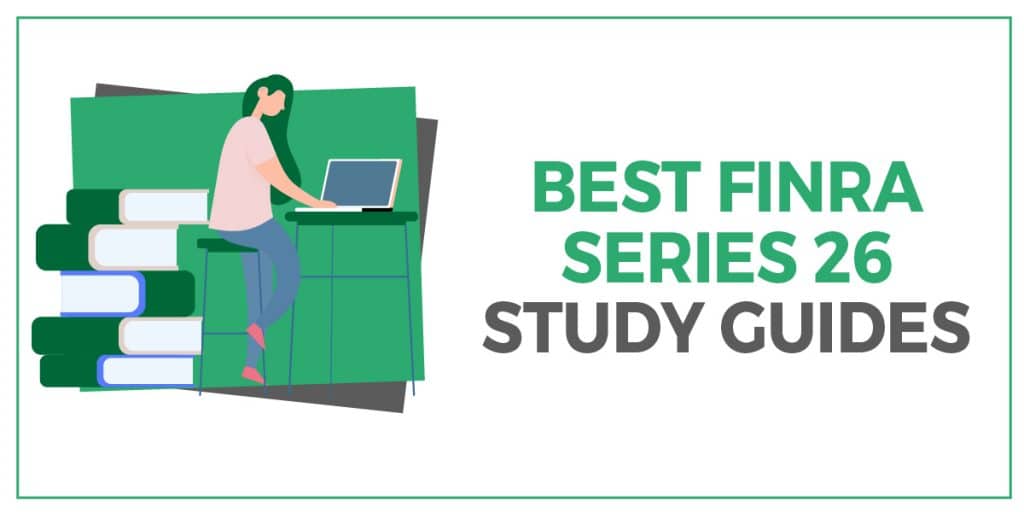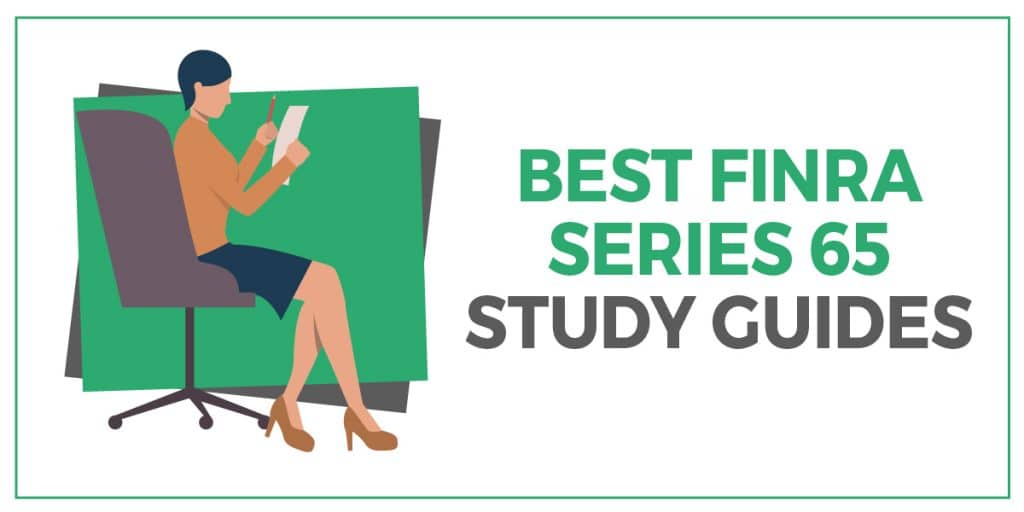Earning a securities certification can help you build a stable new career. The Financial Industry Regulatory Authority (FINRA) offers a wide range of certifications that cover many different aspects of this career path. Thanks to that, it can be tough to figure out which certification to go for.
Series 66 and Series 63 are 2 of the more popular options when working towards a certification. Each of them prepares you for work with securities in a few key ways. However, they also have quite a few differences when it comes to exam difficulty, content, and cost.
I’ve compiled all the key information you need to know about these 2 exams to ensure that you know what you’re getting into ahead of time. You’ll be able to start working towards your certification with confidence as long as you read everything below.
Keep reading to learn more about the similarities and differences between the FINRA Series 66 exam vs. Series 63 exam!
Exam Costs
Prices for each exam are fairly similar. FINRA has a full listing of prices for each exam on their website; it currently costs $177 to sign up for the Series 66 exam and $147 for the Series 63 exam.
However, you need to keep in mind the other costs that you’ll be dealing with.
Students have to spend money on more than just the price of the exams. You’ll likely want to spend money on study materials or even a full study course. Plus, there’s transportation costs to account for and the opportunity cost of taking a day off to take the test. Your opportunity costs will admittedly be quite low, but you’re going to want to put at least $200 aside for study materials.
As you can see, neither exam is too expensive as long as you’re smart about saving up the money you need ahead of time.
Exam Content
The content of each exam is the main point of difference between both exams. Each test covers major components of state law in different ways. Series 66 is the Uniform Combined State Law Exam and Series 63 is the Uniform Securities Agent State Law Exam.
But what does that mean exactly? Keep reading to learn more:
Series 66 Exam Questions
Anyone taking the Series 66 exam is trying to prove their qualifications as both a securities agent and an investment advisor representative. They’ll do so by answering 100 multiple choice questions across 4 major content areas.
Questions are distributed across topics like this:
- Economic Factors and Business Information – 5 Questions
- Investment Vehicle Characteristics – 20 Questions
- Client/Customer Investment Recommendations and Strategies – 30 Questions
- Laws, Regulations, and Guidelines – 45 Questions
Series 63 Exam Questions
By contrast, the Series 63 exam only focuses on qualifying as a securities agent. As a result, the test has far fewer questions and less content to test you on. Instead, you’ll need to answer 65 questions across 8 content areas.
Questions on the Series 63 exam can be broken down into these categories:
- Regulation of Investment Advisers Including State-Registered and Federal Covered Advisers – 3 Questions
- Regulation of Investment Adviser Representatives – 3 Questions
- Regulation of Broker-Dealers – 3 Questions
- Regulation of Agents of Broker-Dealers – 9 Questions
- Regulation of Securities and Issuers – 3 Questions
- Remedies and Administrative Provisions – 6 Questions
- Communication with Customers and Prospects – 12 Questions
- Ethical Practices and Obligations – 15 Questions
Make sure to look at the exam outlines for each test for a more detailed breakdown of each topic area.
Exam Pass Rates
If you’re wondering which of these two security exams is more difficult, consider the average pass rates for both tests.
Series 66 Exam Pass Rate
Generally speaking, the Series 66 exam is considered more difficult than the Series 63 test. It has almost twice the amount of questions with a strict 150 minute time limit. Plus, the exam is intended to prepare you for a career as both a securities agent and an investment advisor representative.
Series 63 Exam Pass Rate
The Series 63 exam has a slightly higher pass rate than the Series 66 test. According to Pass Perfect, the Series 63 test has a pass rate between 70-75% and the Series 66 exam has a pass rate between 65-70%. That’s not a huge difference, but it is a noticeable one when trying to choose the easier certification.
Choosing a Securities Industry Certification
It’s important to know what kind of work you’re interested in before choosing between these certifications. Both will prepare you to become an investment agent but only the Series 66 will help you become an investment advisor representative on top of that. It may be better to take the easier Series 63 test if you aren’t interested in that extra qualification.
Keep in mind that there’s no point in taking both tests. Anyone who passes the Series 66 exam has already proven that they’re qualified for the work covered by the Series 63 certification. Don’t make the mistake of wasting time and money getting redundant certifications!
Recommended Study Courses
There’s a lot of great prep courses out there, but I recommend checking out what the Securities Institute of America (SIA) or the STCUSA have to offer.
SIA’s courses teach you everything you need to know through a series of video lessons and textbooks. Their courses have also been designed by highly experienced securities professionals. Enrollment for the Series 63 and 66 courses is $125 each.
By contrast, STCUSA focuses much more heavily on practice tests. Students can complete a wide range of customizable practice tests. Each test focuses on a major content area. Plus, you can contact an instructor for help at any time if you’re struggling with certain concepts. Right now their Series 63 course costs $118 and their Series 66 program is $183.
FAQs
The Series 63 certification qualifies you to work as a securities agent. The Series 66 exam takes that a step further by qualifying you for work as a securities agent and an investment advisor representative.
The Series 63 exam is a test used to see if you understand the regulations and ethics that govern securities agents. Passing this test proves you have the necessary knowledge to work as a securities agent.
I personally recommend taking the Series 63 exam first. It’s much shorter and easier than the Series 65 test. Thanks to that, you can get it out of the way early and focus all your attention and study time on the more difficult exam.
It depends on what your strong points are. The Series 7 test relies more on math but is less dense in content areas. By contrast, the Series 66 exam will test your memorization since the exam is fully based on understanding securities law.












